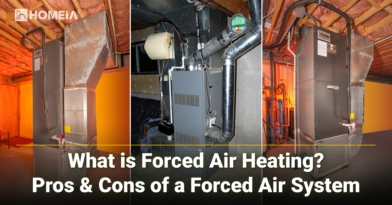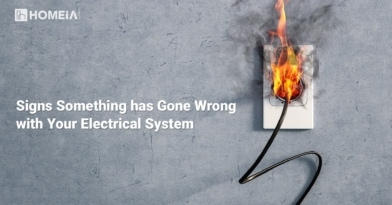Why Home Insulation is a Smart Investment for Every Homeowner
- Author:by The HOMEiA Team
- Category: Home Improvement

You’ve likely heard about the importance of home insulation from various sources — be it your local utility providers, government initiatives or even health experts. The topic often comes up in discussions about energy efficiency and comfortable living.
But what really stands behind the decision to invest in home insulation? It’s not just about following advice; it’s about understanding the real, tangible benefits that come with it.
In today’s fast-paced life, where every minute and every dollar counts, it’s crucial to make smart choices for our homes and our wallets. What if we told you that investing in a home insulation project could offer more than just immediate comfort?
Imagine a solution that not only enhances your living space but also contributes to significant financial savings over time. Yes, insulation is that powerful — it’s an investment that keeps on giving, year after year.
Join us as we explore the top six reasons why insulating your home is not just a wise decision, but a financially savvy one. From slashing energy bills to boosting your property’s value, we’ll uncover how this seemingly simple upgrade can transform your home and save you a small fortune in the long run.
Table of Contents:
- 1. Substantial Savings on Energy Bills
- 2. Enhancing Your Home’s Resale Value
- 3. Extending the Lifespan of Your HVAC System
- 4. Capitalizing on Government Tax Credits for Insulation
- 5. Maximizing Savings with Insulation Rebates
- 6. Enhancing Health and Well-Being Through Insulation
- Conclusion: The Smart Choice for Your Home and Future
1. Substantial Savings on Energy Bills
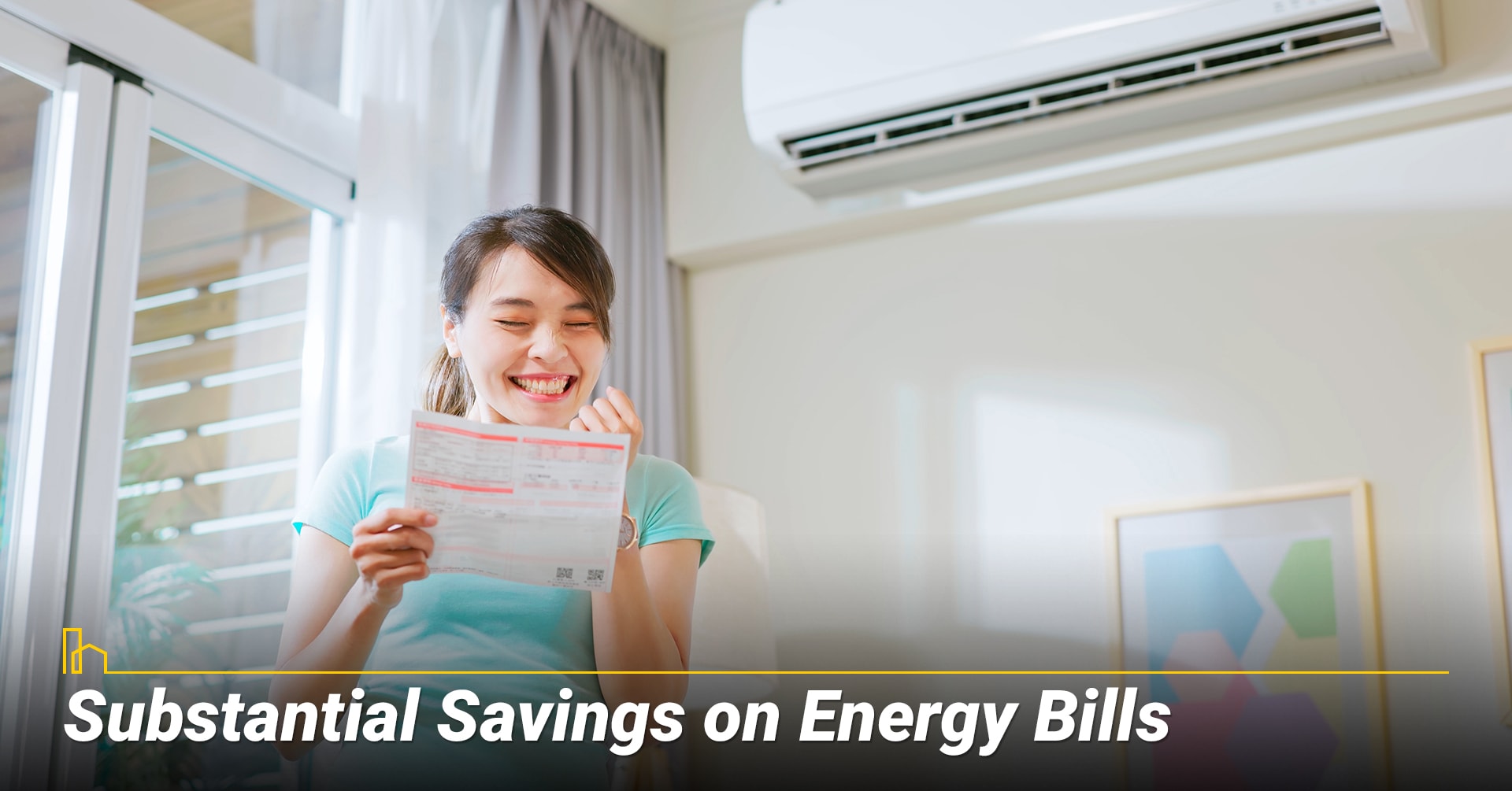
While the concept of saving on utility bills through home insulation might seem straightforward, the extent of these savings is often underestimated. A well-insulated home acts like a shield, keeping the comfortable indoor climate locked in, irrespective of the weather outside.
This becomes particularly crucial during the extreme temperatures of summer and winter, when our reliance on heating and cooling systems peaks.
A. The Impact of Insulation on Energy Consumption
According to the Office of Energy Efficiency & Renewable Energy in Washington, D.C., a staggering 50-70% of the energy used in our homes is attributed to heating and cooling (energy.gov).
This is where insulation steps in as a game-changer. By optimizing the temperature of your home, insulation can dramatically reduce your energy bills.
In fact, statistics from the U.S. Department of Energy suggest that homeowners can save approximately 15-25% on their annual heating and cooling expenses simply by insulating their homes.
B. Immediate Savings, Lasting Comfort
What’s impressive about insulation is the immediacy of its financial benefits. As soon as your insulation project is completed and your heating and cooling systems are back in operation, the savings kick in.
This immediate reduction in energy costs can significantly offset the initial investment in insulation, making it a financially attractive option for homeowners looking to improve their home’s efficiency and comfort.
But wait! There’s more!
9 Affordable Ways to Insulate Your Windows for Winter
Since we value the natural light, ventilation and outdoor views our windows provide, our best option is not to remove them but to make sure they’re insulated as well as possible. Here’re some techniques you can use to make sure your windows aren’t letting out all the heat your furnace supplies…
2. Enhancing Your Home’s Resale Value

Insulating your home does more than just save energy; it significantly boosts your home’s appeal and market value.
For potential buyers, a well-insulated home is not just a comfortable living space but also a sign of a well-maintained and energy-efficient property. This makes it a compelling selling point in the competitive real estate market.
A. The Remarkable ROI of Insulation Upgrades
The financial impact of insulation on your home’s value is both remarkable and quantifiable. According to a 2022 study by the National Association of Realtors, every dollar invested in insulation can lead to an instant increase in home value that recoups the project expense, and that’s in addition to the immediate reduction in energy costs!
Included in that study was a “Joy Score” of 10/10 by consumers who were ecstatic about the immediate impacts. This astounding return on investment illustrates how insulation upgrades can be a lucrative aspect of home improvement.
B. Market Trends and Home Value Increases
In today’s housing market, where energy efficiency is increasingly prized, insulation upgrades are a smart way to increase your home’s value. Data from HomeWorks Energy suggests that homeowners could see a 2-6% rise in their property’s value following insulation improvements.
To put this into perspective, with the median U.S. home price hovering around $412,000 as reported by Forbes, even a modest 2% increase in home value post-insulation can translate to an impressive $8,000 boost in property worth.
C. A Quick Upgrade with Lasting Benefits
What’s more, insulation upgrades can often be completed swiftly, sometimes within a couple of days, yet the increase in home value they bring is both immediate and enduring. This makes insulation not just a wise choice for your comfort and energy savings, but also a strategic investment in the financial future of your property.
What is Forced Air Heating? Pros & Cons of a Forced Air System
Forced air heating systems are the most popular home heating systems in North America. But how do they work? And are they right for all homeowners, or are there other options? Here we’ll explore how a forced air system works and take a look at its Pros and Cons. Then we’ll introduce a few alternatives that may work for certain homeowners…
3. Extending the Lifespan of Your HVAC System

Insulation is your home’s heating and cooling systems’ best friend. Effective insulation in a home is like a silent guardian, significantly enhancing the efficiency and longevity of your HVAC system.
In homes without proper insulation, precious heated or cooled air can easily escape through walls, attics and floors, forcing HVAC systems to work overtime. This not only increases energy consumption but also leads to higher operational and maintenance costs.
A. The Dual Benefit: Reduced Run Time and Maintenance
A well-insulated home is a gift that keeps on giving, especially to your HVAC system. The U.S. Department of Energy points out that proper insulation can drastically reduce the run time of your heating and cooling systems.
Because insulation helps your home maintain a more consistent indoor temperature, your HVAC doesn’t have to cycle on as frequently, which means less wear and tear over time. This translates to reduced upkeep and maintenance needs — a key factor in prolonging the life of these systems.
B. Financial Savings Beyond Energy Bills
Investing in insulation is not just about achieving energy efficiency; it’s also about economic savings in home maintenance.
The Energy Star program points out that saving on repair and replacement costs for HVAC systems can lead to significant financial benefits. Considering that the average cost of an HVAC system is around $8,000, as reported by Forbes, minimizing the need for repairs or replacement can lead to substantial cost savings.
This makes the initial investment in insulation not just a cost but a savvy financial decision for the long-term health of your home.
9 Affordable Ways to Heat Your Home This Winter
If your heating bill was frightening last year, if you’re building a residence or vacation home, or if your old system is starting to fail, it is time to look at your options when it comes to heating your home. Here we’ll explore some cost-effective ways to keep your space comfortable this winter…
4. Capitalizing on Government Tax Credits for Insulation
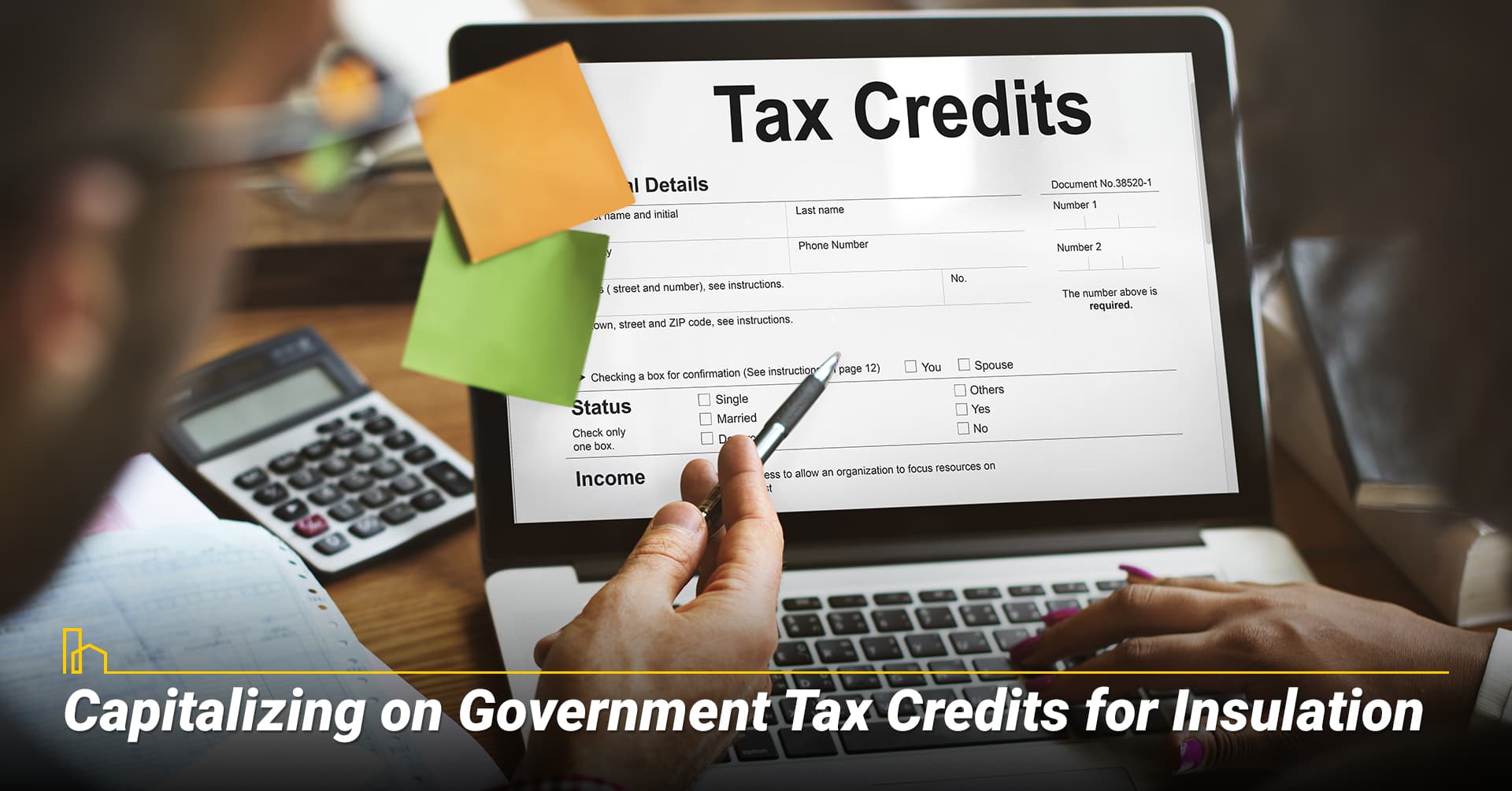
In the realm of making your home energy efficient, government tax credits and incentives play a pivotal role. These financial incentives, available at the local, state and federal levels, are designed to encourage homeowners to adopt energy-saving measures like insulation upgrades.
Not only do these incentives help in managing the initial investment costs, but they also underscore a commitment to sustainability and energy efficiency.
A. Understanding the Financial Benefits of Tax Credits
For homeowners considering insulation upgrades, understanding the available tax credits can lead to significant savings. For instance, in 2022, the insulation tax credit allowed homeowners to claim up to 10% of the cost of insulation, with a cap of $500.
Fast forward to 2023, and this benefit becomes even more enticing. According to EnergyStar.gov, the credit amount has increased to 30% of the insulation cost for qualified materials, with a new maximum limit of $1,200. This substantial increase is a clear indication of the growing support for energy conservation initiatives.
B. Exploring Local and State Incentive Programs
Beyond federal incentives, many local and state governments offer additional benefits, such as property tax reductions for energy-efficient home improvements. These local programs often include grants and low-interest loans, further reducing the financial burden of insulation projects.
Homeowners are encouraged to explore these options to fully capitalize on the available incentives. Resources like DSIRE (Database of State Incentives for Renewables & Efficiency) provide a comprehensive look at the incentives available in different areas.
By taking advantage of these tax credits and incentives, homeowners can significantly offset the cost of insulation upgrades, making this energy-saving measure not only beneficial for the environment but also kinder to our wallets.
Signs Something Has Gone Wrong with Your Electrical System
Fortunately, it’s not hard to make sure your electrical system stays in tip-top shape. Just pay attention once in a while and notice if there are any signs of trouble. Here’re 9 big signs that your electrical system has a problem—and what to do to keep the problem from growing even…
5. Maximizing Savings with Insulation Rebates
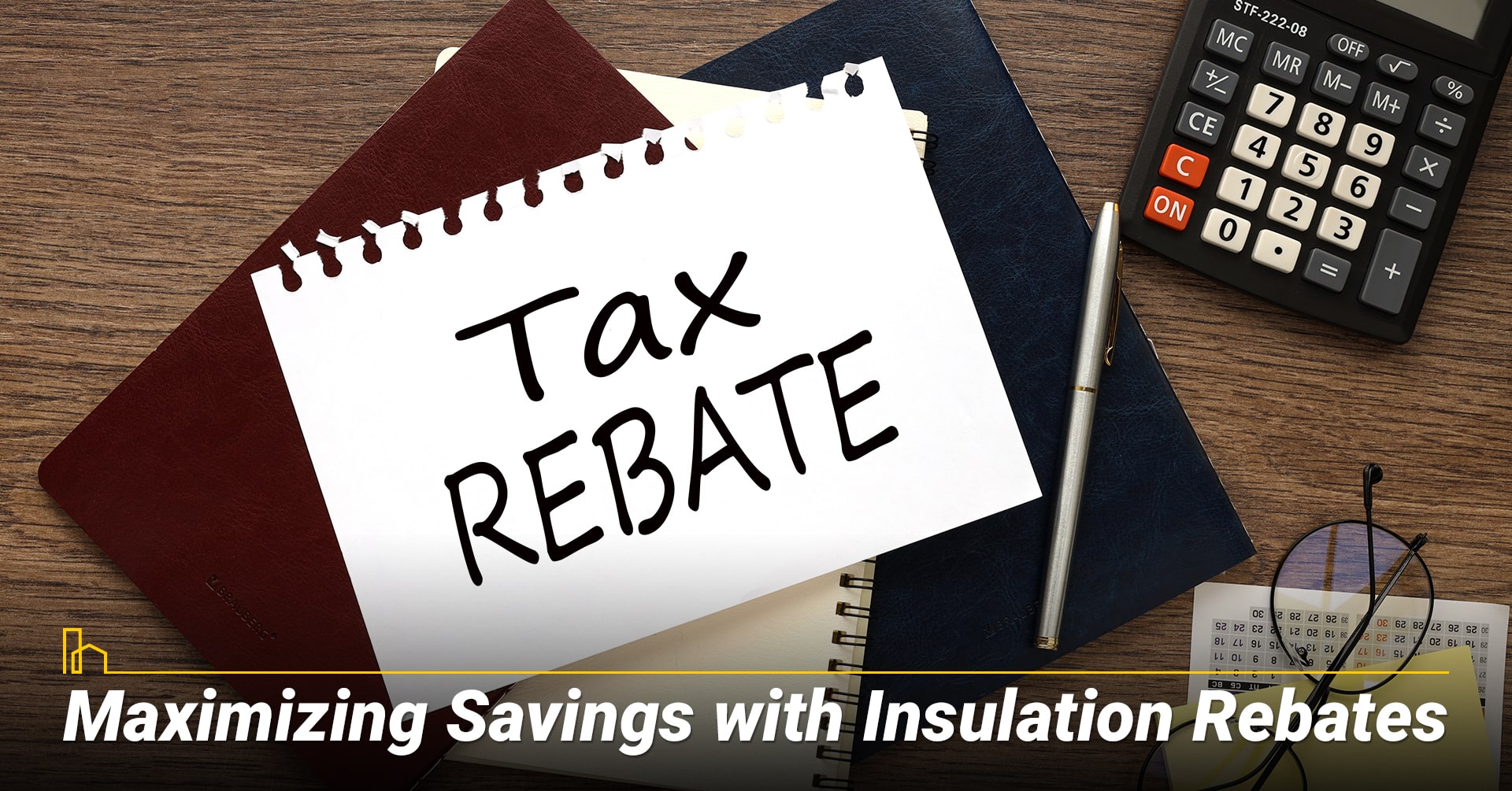
The journey to a well-insulated home is filled with opportunities for savings, one of the most notable being the availability of rebates. It might come as a surprise, but numerous organizations offer rebates for homeowners who decide to invest in insulation.
These rebates are not just limited to product manufacturers, who often provide incentives to promote their brands, but also include various non-profit and environmental organizations.
A. Energy Star Program and Inflation Reduction Act Incentives
A prime example of such initiatives is the U.S. Environmental Protection Agency’s Energy Star Program, which offers rebates for energy-efficient upgrades, including insulation.
Furthermore, the Inflation Reduction Act, signed by President Biden in 2022, earmarked a significant $8.8 billion for rebates specifically aimed at home energy efficiency projects. This substantial funding underscores the government’s commitment to promoting energy-efficient living.
B. Exploring Green Building Program Rebates
In addition to federal initiatives, there are also rebates available through various green building programs. These programs often allow homeowners to stack benefits, further reducing the costs associated with insulation upgrades. The financial advantages of these programs can be substantial, making insulation upgrades more accessible and appealing to a broader range of homeowners.
C. Finding Rebates in Your Area
Homeowners interested in taking advantage of these opportunities can look to tools like the Energy Star Rebate Finder. This resource offers a comprehensive look at the rebates available in different regions, helping homeowners identify and capitalize on the incentives applicable to their insulation projects.
By exploring and utilizing these rebates, homeowners can significantly reduce the net cost of insulation, making it a financially smart decision that benefits both their wallets and their home’s energy efficiency.
10 Clever DIY Home Office Improvement Tips to Improve Your Health
Clearly, home offices have become extremely popular. And since you’re most likely spending considerable time in this space, the room should also promote health and wellness. In order to achieve this, here are some home office improvement tips you might want to use…
6. Enhancing Health and Well-Being Through Insulation

While the direct cost savings and financial incentives of home insulation are often highlighted, it’s crucial to recognize the indirect benefits, particularly those related to health.
Effective insulation goes beyond just temperature control; it also plays a pivotal role in creating a healthier living environment. One of the key ways it does this is by reducing the occurrence of mold, a common yet serious issue in many homes.
A. Combatting Mold and Improving Air Quality
Mold thrives in damp, poorly ventilated spaces, and its presence in homes has been a growing concern, as noted by the Centers for Disease Control and Prevention (CDC). Proper insulation helps maintain dry, temperature-controlled conditions that inhibit mold growth, significantly reducing this risk.
The U.S. Environmental Protection Agency (EPA) and Berkeley National Laboratory have found that nearly half of U.S. homes have conditions conducive to mold growth.
By insulating your home effectively, you can protect your family from the potential health hazards associated with mold, which in severe cases can lead to hospitalization or even more dire health consequences.
B. Noise Reduction and its Impact on Health
Another often-overlooked benefit of insulation is its ability to reduce noise pollution. Especially in urban areas, external noise can be a constant source of stress and sleep disturbance.
Insulation acts as a sound barrier, significantly reducing the intrusion of outside noise and creating a more peaceful and restful home environment. This can be particularly beneficial for sleep quality and overall mental well-being.
C. Insulation’s Role in Temperature Regulation and Health
Moreover, research has shown that extreme temperature fluctuations can adversely affect our immune systems, with the elderly and those with certain medical conditions being especially vulnerable.
The American Journal of Public Health highlights the negative impact of extreme temperatures on health, emphasizing the importance of a well-regulated indoor environment.
Proper insulation, in conjunction with a healthy HVAC system, can mitigate these risks by maintaining a stable and comfortable indoor temperature.
By investing in home insulation, you’re not just saving on energy costs or increasing your property’s value; you’re also investing in the health and well-being of your family. A well-insulated home is a healthier home, providing a safe and comfortable environment for everyone.
The Best 10 Ways to Maintain Your House
Your house is most likely the most expensive purchase of your lifetime — and a safe haven that provides a hub for everyday activities, relaxation and making memories. It doesn’t remain in great shape without some effort, but with some loving care and an organized maintenance schedule, you can manage the upkeep without added stress…
Conclusion: The Smart Choice for Your Home and Future
When we consider the multitude of benefits offered by home insulation, the initial investment pales in comparison to the extensive rewards. This isn’t just a short-term fix; it’s a long-term strategy for enhancing your home and financial well-being.
The immediate and significant savings on energy bills, as cited by the U.S. Department of Energy, are just the beginning.
A. Maximizing Financial Returns and Enhancing Home Value
Insulation boosts your home’s resale value, a fact supported by the National Association of Realtors in 2020. It also reduces the operational strain on HVAC systems, making your home more energy efficient, as noted by Energy Star. Government tax credits and rebates further sweeten the deal, making insulation an even more attractive and affordable home improvement.
B. Beyond Savings: Health and Environmental Benefits
By improving indoor air quality and reducing the risk of health issues like mold, as highlighted by the CDC, insulation contributes to a healthier living environment.
The World Health Organization points out that insulation also shields against noise pollution, promoting a peaceful and restful home atmosphere.
Moreover, by maintaining a stable indoor temperature, it protects against the health risks associated with extreme temperatures, particularly for vulnerable groups like the elderly, as noted by the American Journal of Public Health.
C. Insulation: A Wise Decision for a Sustainable Future
In summary, insulating your home is a decision that offers a remarkable return on investment. It’s a responsible practice that reduces energy consumption and minimizes environmental impact.
The immediate financial benefits, coupled with the long-term advantages in terms of health, comfort and property value, make insulation a sound and wise choice.
By this measure, the decision to insulate your home stands out as a strategic and beneficial choice that enriches not only your life and wallet but also the planet.
How to Raise Your Home’s Value with Bathroom Renovations
Bathroom renovations are an excellent way to add value to your home. As with any remodeling project, however, you can’t expect to recoup the entire cost of the project when you sell. Remodel Magazine puts the expected value of a midrange bathroom redo at 64 percent of the price tag. If you should happen to sell the house in the future, you’ll…


